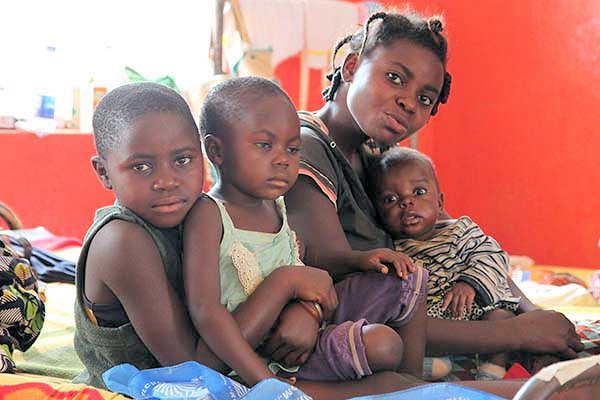World Malaria Day, April 25, is a time to celebrate United Methodists putting faith into action to end preventable deaths from malaria.
Donations from Imagine No Malaria to the Global Fund to Fight AIDS, Tuberculosis and Malaria in 2015 were more than double that of combined donations in the previous four years, according to the annual report issued by the Global Fund to The United Methodist Church.
That’s thanks to the generosity of United Methodists. According to the report, The United Methodist Church is one of the most significant non-government donors to the Global Fund and is unique within the global community of faith-based organizations.
“Today on World Malaria Day, we are thankful for the headway that’s been made against this deadly disease and we reaffirm our commitment to reducing the burden of malaria,” said Bishop Thomas Bickerton, chair of the Global Health Initiative.
“Thanks to all partners involved in the global fight against malaria, great progress has been made in the last 15 years,” states the report. “New methods of testing, the widespread distribution of insecticide-treated nets and the introduction of Artemisinin-based combination therapies have led to a 48 percent drop in malaria deaths between 2000 and 2014.”
In 2010, the Global Fund and the people of The United Methodist Church joined forces in the fight against malaria through the denomination’s Imagine No Malaria campaign, which aims to raise $75 million to address the impact of malaria in Africa through prevention, treatment, communication and education.
“This is the largest contribution ever received from a faith-based organization.”
“We thank The United Methodist Church for this contribution and their relentless efforts in the fight against malaria,” said Dr. Mark Dybul, executive director of the Global Fund. “This is the largest contribution ever received from a faith-based organization and it’s extremely encouraging to see partners of all sectors coming together to eliminate malaria”.
“The United Methodist Church’s infrastructure in Africa, including a network of hospitals and clinics, combined with the scope and resources of the Global Fund, has enabled us to forge a powerful partnership that achieves far more than would be possible alone,” said Bickerton.
Funds raised by the Imagine No Malaria campaign benefiting the Global Fund have contributed to life-saving malaria programs in nine African countries particularly affected by the disease. These countries are Angola, Côte d’Ivoire, Democratic Republic of Congo, Liberia, Mozambique, Rwanda, Sierra Leone, Uganda, and Zimbabwe.
Key results achieved by the Global Fund in these countries from mid-2014 to mid-2015 include distributing 59.4 million bed nets (a 40 percent increase over the previous year), treating 18.7 million malaria cases, spraying 1.5 million houses, providing 5.1 million community outreach prevention services, and delivering 67,000 episodes of training for community workers.
The United Methodist Church has pledged up to $28 million through the Imagine No Malaria campaign to the Global Fund to help those in need enjoy a malaria-free life. So far, the people of The United Methodist Church have contributed $20,085,817 to the Global Fund, with more than half of that amount donated last year alone.
A check for $9.6 million was presented to the Global Fund this past April to mark World Malaria Day 2015, the single largest contribution to the fund made by a faith organization. The contribution was used in Angola, Liberia, Mozambique, Rwanda, and Uganda, along with additional funds from the Global Fund for a total of $42,985,839 in these countries. An additional $1,924,0911 has been remitted to the Global Fund in 2016.
The United Methodist General Board of Global Ministries and its Global Health unit provide support for the denomination’s large network of hospitals and clinics across Africa, which also receive funding through Imagine No Malaria.
Last Updated on October 30, 2023

